Trip Coverage

Can I extend my travel insurance coverage if I extend my trip ?
Topic: Extending Travel Insurance Coverage Summary: If you extend your trip, you may need to extend your travel insurance coverage. This depends on your policy's terms and the flexibility of your insurer. To extend coverage, contact your provider, provide details about your extended trip, pay an additional premium, and confirm the extension in writing. Consider timing, potential coverage changes, and alternatives if necessary.

How long before my trip should I buy travel insurance ?
Travel insurance is a crucial component of any trip, offering coverage for unexpected events such as medical emergencies, trip cancellations, and lost luggage. The best time to buy travel insurance depends on various factors, including the timing of your purchase, trip details, personal situation, and research. Timing matters when buying travel insurance. It's recommended to buy early for peace of mind, better pricing, and more options. However, waiting too long can increase the risk of forgetting, limit options, and create coverage gaps. Trip details such as destination, length of stay, and activities should also be considered. Personal situation factors like health status, financial protection, and travel companions' needs should also influence the timing of your purchase. Practical steps include researching policies, comparing online, reading reviews, consulting a broker, completing an online application, confirming details, and keeping records. Ideally, travel insurance should be purchased at least a few weeks before the trip to ensure adequate coverage and avoid last-minute stressors.

What happens if I need to cancel my trip after purchasing travel insurance ?
If you need to cancel your trip after purchasing travel insurance, review your policy for coverage details and time limitations. Contact your insurer to inform them about the cancellation and provide necessary documentation. File a claim by submitting a claim form with supporting documents. Wait for reimbursement, which may vary in processing time and method. Consider rescheduling instead of cancelling if your policy includes trip interruption coverage. Understand that there might be non-refundable expenses even with coverage. Each policy is different, so review your specific policy details and contact your insurer for tailored guidance.

What does a typical travel insurance cover ?
Travel insurance typically covers medical expenses, trip cancellation and interruption, baggage loss and delay, accidental death and dismemberment, and emergency assistance services. Optional extras may include coverage for sports and adventure activities, rental car damage, and travel delay. It's important to consider the specific needs of your trip when selecting a policy and to carefully read the details to understand coverage limits and exclusions.

Is it worth buying travel insurance for domestic trips ?
The article discusses the importance of travel insurance for domestic trips. It suggests that while it may not always be necessary, it can provide an additional layer of protection and peace of mind, especially for those embarking on adventurous or expensive trips. The article provides a list of key points to consider when deciding whether to purchase travel insurance, including risk assessment, coverage details, cost analysis, personal circumstances, and peace of mind. It also lists the benefits of travel insurance for domestic trips, such as medical coverage, trip interruption/cancellation, baggage loss/theft, emergency evacuation, and accidental death and dismemberment. The article concludes by suggesting that the decision to buy travel insurance depends on various factors such as the nature of the journey, existing coverage, and personal preferences.
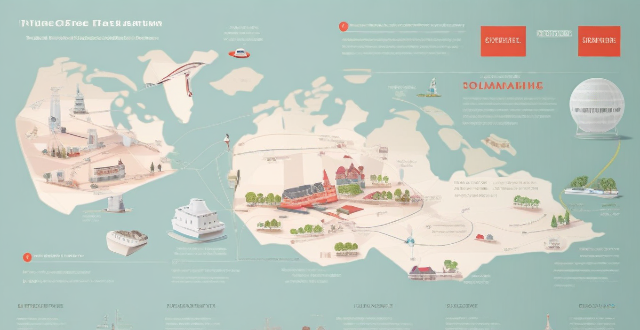
What is the best travel insurance for international trips ?
When it comes to choosing the best travel insurance for international trips, there are several factors to consider. Look for a policy that covers medical expenses, trip cancellation/interruption, baggage and personal effects, emergency evacuation and repatriation, travel delay and missed connection, and identity theft protection. Consider the deductibles and limits of each coverage type within the policy. Pay attention to exclusions and limitations such as pre-existing conditions, adventure sports and activities, and geographical limitations. Look for a reputable insurer with excellent customer service ratings and a smooth claims process. Compare prices across different insurers and policies to find one that fits your budget without compromising on essential coverage. By taking into account these key points, you can choose a policy that provides adequate protection and peace of mind for your next adventure abroad.

How do I choose the right rental car for a road trip ?
When planning a road trip, selecting the right rental car is crucial for comfort, safety, and enjoyment. Here's how to make the best choice: **Consider Your Travel Needs** - Number of Passengers: Determine how many people will be traveling with you. A compact car might suffice for two adults, but a larger group may require an SUV or minivan. - Luggage Space: Think about the amount of luggage you'll have. If you're packing heavily or bringing bulky items like sports equipment, opt for a car with ample trunk space or a hatchback. **Assess the Terrain** - City Driving: If your trip involves mostly city driving, a smaller, fuel-efficient car will be easier to navigate through traffic and park. - Rural or Mountainous Areas: For winding roads and rough terrain, consider a vehicle with better handling and ground clearance, like an SUV or an all-wheel drive vehicle. **Set Your Budget** - Fuel Economy: Check the fuel efficiency ratings of different cars. A more economical car can save you money on gas during your trip. - Rental Rates: Look at the daily or weekly rates for different types of vehicles. Higher-end models and larger vehicles typically cost more to rent. **Check for Features and Add-ons** - GPS and Navigation: Decide if you need in-car navigation. Some rentals come with built-in systems or you might use your smartphone with a mount. - Entertainment: If you'll have children on board, look for rentals that offer rear-seat entertainment systems to keep them occupied. **Safety First** - Safety Ratings: Research the safety ratings of the rental cars you're considering. Choose vehicles with high safety scores to protect you and your passengers. - Emergency Kit: Ensure the rental includes an emergency kit (e.g., spare tire, jack, jumper cables) in case of unforeseen circumstances. **Read Reviews and Ask Questions** - Customer Experience: Read reviews from previous renters to learn about their experiences with specific car models or rental companies. - Insurance Options: Understand the insurance options provided by the rental company and whether it's worth purchasing additional coverage. **Book Early for Best Deals** - Advance Reservations: The earlier you book, the more likely you are to get the car you want at a better rate. - Comparison Shop: Use comparison websites to find the best deals among various rental companies.
![Are there any travel warnings or advisories that I should be aware of before planning a trip to [insert destination] ?](/imgs/2f8b31ee-f62a-46e3-8828-37a4af062f9b.png)
Are there any travel warnings or advisories that I should be aware of before planning a trip to [insert destination] ?
Before planning a trip to [insert destination], itBefore planning a trip to [insert destination], it of any travel warnings or it is important to be aware of any travel warnings or advisories that may affect your safety and well-being. Here are some steps you can take to ensure a safe and enjoyable trip: 1. Check the government website of the country you plan to visit for an overview of the current situation and any travel warnings or advisories that have been issued. 2. Research local news sources in the destination country to get a better understanding of the current situation and any potential risks. 3. Contact your embassy or consulate directly if you have any specific concerns about traveling to the destination country. 4. Consider purchasing travel insurance to provide coverage for unexpected events such as medical emergencies, trip cancellations, or lost luggage. By following these steps, you can ensure a safe and enjoyable trip while minimizing any potential risks.

What are the benefits of having nationwide network coverage ?
Nationwide network coverage is vital for modern communication, offering improved connectivity, economic opportunities, efficiency, emergency response, education, healthcare, innovation, and social inclusivity. It enables remote work, streamlined operations, e-learning, telemedicine, research collaboration, and cultural exchange. This coverage is crucial for socio-economic development, quality of life, and equality in the digital age.

Can I purchase travel insurance after booking my trip ?
The article discusses the possibility of purchasing travel insurance after booking a trip. It emphasizes that buying travel insurance early provides more comprehensive coverage, peace of mind, and potentially better prices. To purchase travel insurance after booking, one should research different policies, contact their travel agent or insurance company, provide relevant information, read the policy details carefully, and keep documentation safe. The article concludes that buying travel insurance early is generally recommended for optimal coverage and peace of mind during travels.

How do I plan a backpacking trip on a budget ?
This guide outlines how to plan a budget-friendly backpacking trip by defining a realistic budget, choosing an affordable destination, traveling during off-peak season, opting for budget accommodations, cooking own meals, using public transport, engaging in free activities, packing light, staying connected affordably, and not skimping on trip insurance. It emphasizes the importance of research, flexibility, and openness to new experiences for a memorable adventure without financial strain.

Is there an age limit for buying travel insurance ?
Is there an age limit for buying travel insurance? Most providers do not impose any restrictions based on age, but some policies may have specific requirements or limitations regarding age. When purchasing travel insurance, consider factors such as coverage options, pre-existing medical conditions, adventure sports coverage, cost, and reputation.

What should I look for in a travel insurance policy for adventure activities ?
When selecting a travel insurance policy for adventure activities, there are several key factors to consider, including coverage for specific sports and equipment, medical and evacuation coverage, trip interruption and cancellation, baggage and personal effects, liability coverage, and customer service and support. By considering these factors, you can choose a policy that will give you peace of mind and financial protection during your exciting adventures abroad.

Is it safe to drive at night during a road trip ?
Driving at night during a road trip can be exhilarating but also risky due to reduced visibility and potential for drowsiness. To ensure a safe journey, consider safety precautions such as checking headlights and fog lights, taking breaks every two hours or 100 miles, being extra vigilant in areas with wildlife, maintaining vehicle condition, using technology wisely, being prepared for emergencies, checking weather conditions, obeying legal requirements and regulations, and getting adequate sleep before starting the trip. By following these guidelines, you can help ensure a safer journey under the stars.

What are the best routes for a Canadian road trip ?
Canada is a land of diverse landscapes, from the rugged mountains to the vast coastline. A road trip across this beautiful country can be an unforgettable experience. Here are some of the best routes for a Canadian road trip: - The Trans-Canada Highway (Route 1) - The Cabot Trail, Nova Scotia - Icefields Parkway, Alberta - Dempster Highway, Yukon - Pacific Rim Highway, British Columbia

Does travel insurance cover lost or delayed luggage ?
Travel insurance can cover lost or delayed luggage, but it depends on the policy's terms and coverage. Travel insurance typically covers medical emergencies, trip cancellation/interruption, baggage loss/delay, flight accident, and emergency assistance services. Baggage loss/delay coverage includes compensation for lost, stolen, or delayed baggage, as well as reimbursement for essential items during delays. It is important to review the policy details carefully, including coverage limits, deductibles, claims process, exclusions, and terms.
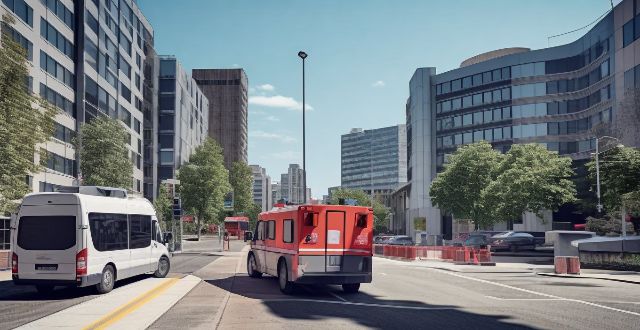
How does network coverage vary between different mobile carriers ?
Network coverage among mobile carriers varies due to differences in infrastructure investments, partnerships and roaming agreements, and technological advancements. Carriers that invest heavily in building and maintaining their network infrastructure are likely to have more extensive coverage than those with limited resources. Partnerships and roaming agreements allow customers to use the partner network's services in areas where the original carrier does not have coverage. Technological advancements like 5G promise faster speeds and better coverage, especially in densely populated urban areas. The geographic coverage of mobile carriers varies significantly, with some carriers focusing on providing extensive coverage across large regions while others prioritize dense urban areas. Speed and capacity also differ among carriers, with those having more advanced infrastructure and technologies typically offering higher speeds and greater capacity. Quality of service is another factor that varies among mobile carriers, including aspects such as call clarity, connection reliability, and data transfer rates. Customers should consider these factors when choosing a carrier to ensure reliable and efficient mobile connectivity.

What is the importance of having a good network coverage ?
The text discusses the importance of having a good network coverage in today's world where communication and connectivity are essential aspects of our daily lives. It outlines several reasons why having a strong and reliable network coverage is crucial, including improved communication, better access to information, enhanced productivity, entertainment on the go, safety and security, and business growth and opportunities. The text concludes that having a good network coverage is an integral part of our modern lifestyle and should not be overlooked when choosing a service provider or planning internet usage.
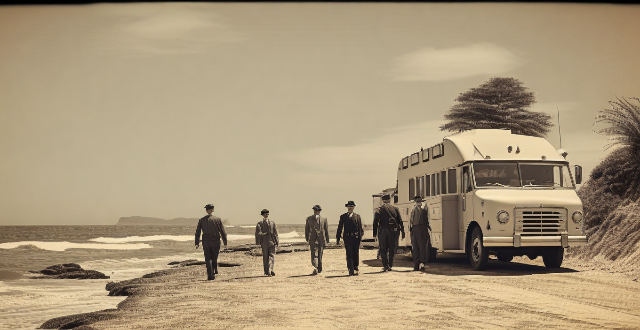
Will travel insurance cover me if I get sick while abroad ?
Travel insurance can cover travelers if they get sick while abroad, but coverage depends on the policy's terms and conditions. Factors to consider include coverage limit, deductible, pre-existing conditions, exclusions, emergency evacuation/repatriation, and claims process. When choosing a travel insurance policy, assess your needs, compare policies, read reviews, purchase early, and consult a professional if necessary.
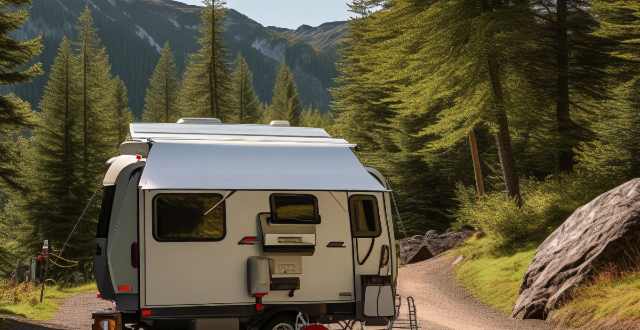
What are the best practices for packing light for a road trip adventure ?
Packing light for a road trip adventure is key to enjoying the journey without being weighed down by excess baggage. Best practices include planning outfits in advance, using packing cubes or compression sacks, rolling clothing instead of folding, sticking to a color scheme, opting for travel-size toiletries, wearing bulkiest items on the plane, and limiting accessories. By following these tips, you can ensure an enjoyable and stress-free road trip adventure.
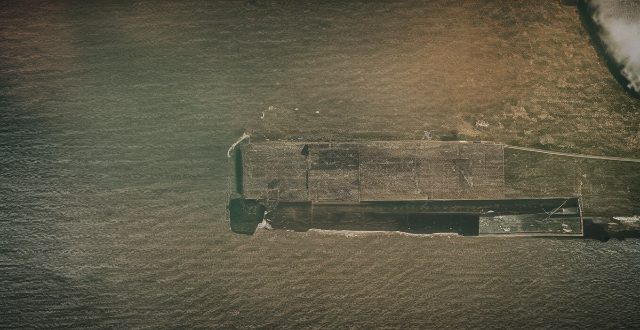
How can I plan a perfect weekend trip to a nearby city ?
How to plan a perfect weekend trip to a nearby city.

How often should I review and update my insurance coverage ?
Insurance coverage is a vital part of financial planning, and it's essential to ensure that policies are up-to-date and reflect current needs. Here's a guide on how often to review and update insurance coverage: 1. **Life Events**: Review coverage during significant life events like marriage, divorce, having children, buying a home, retirement, or job changes. 2. **Annual Check-ups**: Even without major life events, annual reviews help ensure coverage sufficiency, competitive rates, and accurate policy details. 3. **Quarterly Check-ins**: These can aid in monitoring premium payments and understanding policy updates or regulatory changes. 4. **Monthly Reminders**: Set reminders to monitor claims processing, check for discounts, and update emergency contact information. By staying proactive and informed about insurance policies, individuals can ensure they have the right coverage for their evolving needs.
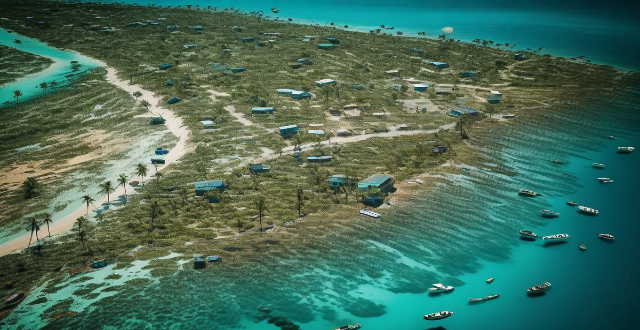
How can I get better cell phone coverage in rural areas ?
Improving cell phone coverage in rural areas can be achieved through various methods. Firstly, checking and optimizing your phone's settings can enhance reception. Secondly, signal boosters or cell phone repeaters can amplify weak signals. Thirdly, switching to a different carrier with better rural coverage might be beneficial. Fourthly, satellite phones offer unparalleled coverage in extremely remote locations. Fifthly, using public Wi-Fi networks can temporarily improve internet connection. Lastly, investing in high-quality antennas can capture weaker signals more effectively.

How should I prepare my vehicle for a long-distance road trip ?
Preparing Your Vehicle for a Long-Distance Road Trip A long-distance road trip is an exciting adventure, but it's essential to ensure that your vehicle is in top condition before hitting the open road. Here are some steps you can take to prepare your car for the journey ahead: Check the basics such as tires, fluids, lights, and battery. Perform safety checks on brakes, suspension, belts, and hoses. Make sure your entertainment system and charging ports are working correctly. Consider installing seat covers and using organizers or storage solutions to keep items tidy and accessible during the trip. Don't forget to pack an emergency kit with jumper cables, a flashlight, reflective triangles, and a first aid kit just in case you encounter any issues along the way.

What is the relationship between sports sponsorships and media coverage ?
Sports sponsorships and media coverage are interdependent entities that significantly impact the promotion of sporting events and athletes. This article explores their relationship, including how each influences the other and their collective impact on the sports industry. Sports sponsorships offer benefits such as increased exposure, brand awareness, targeted marketing, customer loyalty, and corporate social responsibility. Media coverage amplifies these benefits by increasing visibility, enhancing brand image, improving ROI, creating opportunities for storytelling, and amplifying promotional efforts. The relationship between sports sponsorships and media coverage is mutually beneficial, with each entity contributing to the success of the other. To maximize this relationship's benefits, sports organizations and sponsors must collaborate to create captivating stories and experiences that attract media attention and consumer interest.

Where can I find recommendations for a coastal road trip in California ?
California's coastline is a treasure trove for road trippers, with stunning views and diverse attractions. Starting points like San Francisco or Los Angeles offer unique experiences, from exploring iconic landmarks to enjoying the laid-back beach culture. Key highways such as Highway 1 and the Pacific Coast Highway provide access to picturesque towns and natural wonders. Northern California highlights include Mendocino's Victorian charm, Big Sur's majestic landscapes, and Monterey's marine life. Central California offers Hearst Castle's grandeur and San Luis Obispo's historic missions. Southern California beckons with Santa Barbara's sophistication and Los Angeles' entertainment hub. Along the way, enjoy hiking, whale watching, kayaking, and visiting wineries. Plan your trip considering timing, accommodations, weather, and vehicle readiness for a smooth journey.

What kind of insurance coverage should I have for disaster preparedness ?
When it comes to disaster preparedness, having the right insurance coverage is crucial. Here are some types of insurance that you should consider: - Homeowners Insurance: Covers the structure of your home, personal belongings, and provides temporary housing expenses if you cannot live in your home due to a covered loss. - Flood Insurance: Covers damage to your home and its contents caused by flooding and requires an Elevation Certificate. - Earthquake Insurance: Covers damage to your home's structure and personal belongings caused by an earthquake. - Windstorm/Hurricane Insurance: Covers windstorm or hurricane damage with a specific deductible and exclusion clauses. - Liability Insurance: Covers bodily injury or property damage that you cause to others and provides additional liability coverage beyond standard policies. - Business Insurance: Covers lost income and extra expenses if your business is interrupted by a disaster and damage to your business property. - Life Insurance: Provides coverage for a specific period of time or lifetime coverage and builds cash value over time. - Health Insurance: Ensures coverage for medical expenses related to disasters and ER visits during emergencies.

What is the impact of drone technology on sports event coverage ?
Drone technology has revolutionized sports event coverage by providing new perspectives and enhancing the viewing experience. It offers improved visual experiences through aerial shots, enhanced storytelling, increased accessibility to difficult areas, cost-effective solutions, and safety benefits. The use of drones in sports event coverage has made it more engaging and exciting for viewers, while also making production safer and more accessible for filmmakers and broadcasters.

Are there any exclusions or limitations to sports insurance coverage ?
Sports insurance is designed to protect athletes, coaches, and organizations from financial losses due to injuries, accidents, or other unforeseen events. However, there are certain exclusions and limitations that may apply, including pre-existing conditions, high-risk sports and activities, alcohol and drug use, deductibles and co-payments, policy limits, and time limits for filing claims. It is important to be aware of these factors when purchasing sports insurance to ensure adequate coverage for your needs.

What is the coverage like for different mobile operators in my region ?
Topic: Coverage for Different Mobile Operators in Your Region Summary: The coverage and services of different mobile operators in your region can vary significantly. Operator A has wide coverage in urban areas but only moderate coverage in rural areas, while Operator B provides extensive coverage in both urban and rural areas. Operator C, on the other hand, has limited coverage in urban areas and poor coverage in rural areas. Most operators offer 4G/LTE coverage in major cities and towns, with some starting to roll out 5G coverage in select cities. Data speeds vary between 10-100 Mbps for download and 5-50 Mbps for upload, depending on the operator and location. Call quality is generally good for voice calls but can be affected by network congestion for video calls. Customer support is available through service centers in most cities and towns, as well as online chat or email support. Pricing plans include prepaid options with limited data and postpaid options with more data but a monthly commitment. Signal strength can fluctuate based on location and time of day, and network downtime is rare but can occur during maintenance or outages.